Our Gathering, kexwkexwntsút chet, tə sq̓əq̓ip ct, March 2021 - Summary Report
Catalogue: R1-68E-PDF
ISSN 2563-6065
© His Majesty the King in Right of Canada, as represented by the Minister of Indigenous Services Canada, 2023.
PDF Version (3.0 Mb, 26 Pages)
Table of contents
Event Summary
Our Gathering 2021, kexwkexwntsút csmt, tə sq̓əq̓ip ct, held March 10 and 11, 2021, was the ninth annual Gathering of First Nation Chiefs, Councillors, Administrators, Elders and Youth from British Columbia, with members from the First Nation Leadership Council and officials from Indigenous Services Canada (ISC) and Crown-Indigenous Relations and Northern Affairs Canada (CIRNAC) in attendance. Held virtually due to the pandemic, the event was co-hosted by the First Nations Leadership Council, comprised of the First Nations Summit, the Union of British Columbia Indian Chiefs, the British Columbia Assembly of First Nations, together with ISC and CIRNAC. Our Gathering 2021, kexwkexwntsút chet, tə sq̓əq̓ip ct, was moderated by Jessie Hemphill and Harold Tarbell.
Attendance
This year, the virtual event was attended by 631 participants, including 172 Chiefs and Councillors and 186 First Nation's organization staff and representatives. The First Nation participants represented 142 First Nations communities from British Columbia.
Program
The two-day agenda included sessions on:
- Murdered and Missing Indigenous Women and Girls
- the United Nations Declaration on the Rights of Indigenous Peoples in Canada
- Bill C-15: An Act respecting the United Nations Declaration on the Rights of Indigenous Peoples
- communications
- emergency management
- education
- economic development
- specific claims
- an armchair discussion with the National Chief of the Assembly of First Nations and the Ministers of Indigenous Services and Crown and Indigenous Relations
Over the two days, panelists and presenters shared successes, lessons learned and best practices.
Cultural Protocols
Cultural protocols were an important part of Our Gathering 2021, kexwkexwntsút chet, tə sq̓əq̓ip ct. Chief Bob Baker from the Squamish Nation opened the Gathering by providing an Honour and Welcome Song. A prayer for the lunch meal was offered by Elder Deanna George from Tsleil-Waututh Nation. The opening prayer for Day Two was offered by Elders Sam and Les George from Tsleil-Waututh Nation and a prayer for the lunch meal was offered by Elder Larry Grant from Musqueam Indian Band.

Elder Deanna George
Tsleil-Waututh Nation
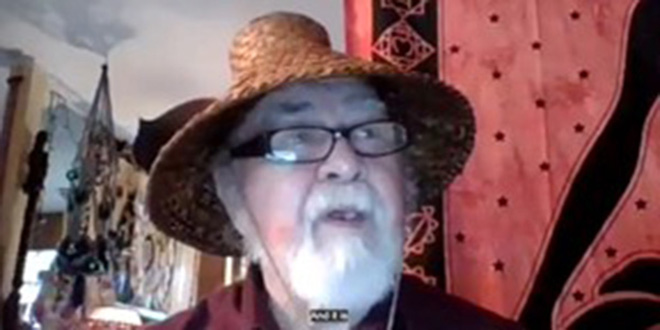
Chief Bob Baker
Squamish Nation

Elders Sam and Les George
Tsleil-Waututh Nation
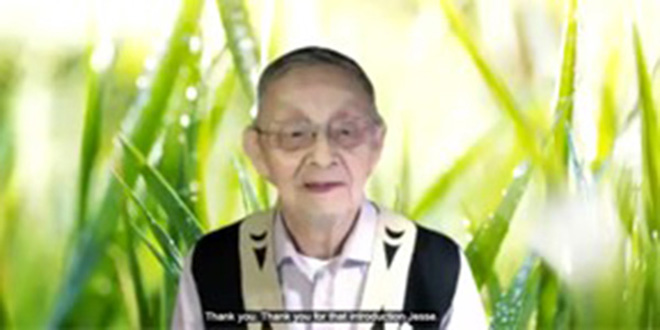
Elder Larry Grant
Musqueam Indian Band
Health and cultural supports were offered throughout the Gathering by Tsow-Tun Le Lum Society and the Indian Residential School Survivors Society, acknowledging that there were topics of discussion that may weigh heavy on the minds and hearts of those in attendance. At any time, participants were able to connect with a support member of their choice directly by phone, text or chat message within a Zoom breakout session. The traditional cultural supports handout was available on the First Nation Public Service Secretariat's website. It provided contact details and short biographies for the supports, as well as descriptions of the Tsow-Tun Le Lum Society and the Indian Residential School Survivors Society.
Technical Support
The First Nations Public Service Secretariat provided technical, logistical, and promotional support to Our Gathering, kexwkexwntsút chet, tə sq̓əq̓ip ct 2021. Zoom was used as the video conferencing tool. A web-based document sharing space was used as a resource library so that participants had access to documents such as the agenda, the delegate information package and the cultural supports information. A web-based survey tool was used to gather participants' evaluations of the event.
Session Summaries
The plenary and breakout session summaries include a brief description and highlights of what was heard and any action items from sessions.
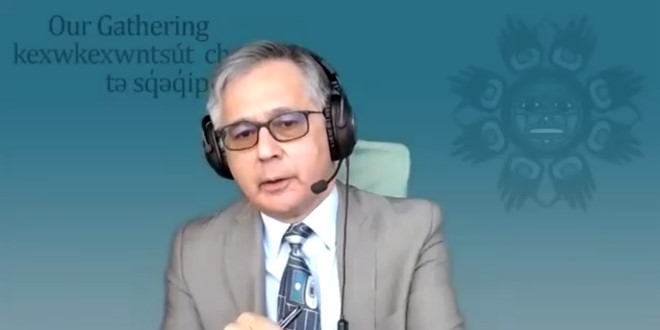
Harold Tarbell
Moderator
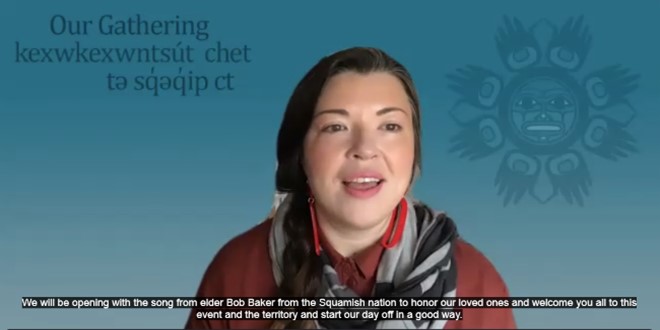
Jessie Hemphill
Moderator
Welcome to Day One
Speakers

Chief Bob Baker
Squamish Nation
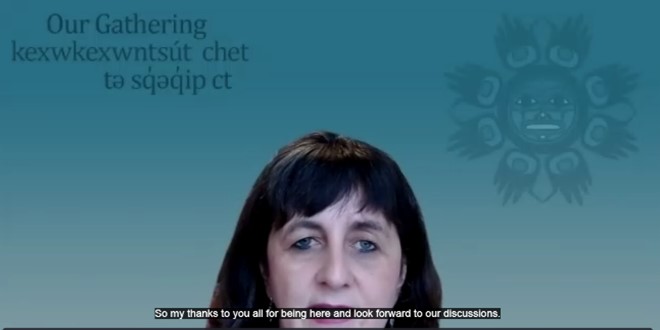
Catherine Lappe
Regional Director General, Indigenous Services Canada BC Region
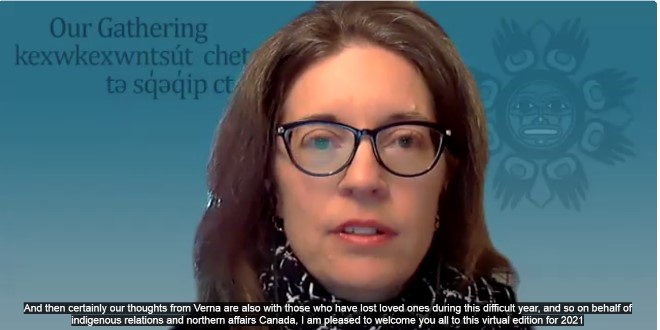
Angela Bate
Director General, Treaties and Aboriginal Government, Negotiations West Crown-Indigenous Relations and Northern Affairs Canada
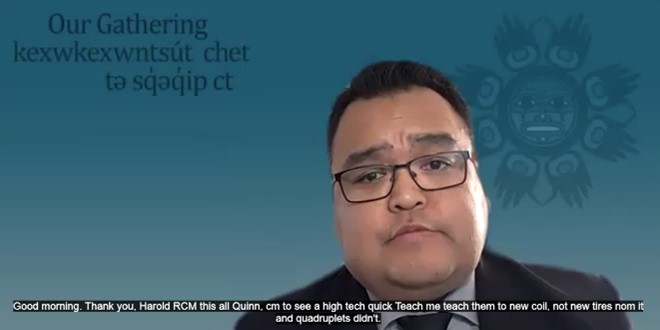
Chief Don Tom
Vice President, Union of BC Indian Chiefs
What Was Heard
The Gathering began with a moment of silence to honour those who lost their lives in the past year. Elder Bob Baker, Squamish Nation, followed the opening with an Honour and Welcome Song.
Catherine Lappe, Regional Director General, ISC BC Region, welcomed participants to the event and highlighted the BC Region Overview Report, which was shared electronically with participants. Also covered was an overview of ISC's key responses to the pandemic.
Angela Bate, Director General, Treaties and Aboriginal Government, Negotiations West, CIRNAC welcomed everyone to the Gathering.
Chief Don Tom, Vice President, Union of BC Indian Chiefs welcomed participants and set the stage for the discussions to follow.
"It's important for us to come together and to continue to meet and provide guidance and feedback." – Chief Tom
Murdered and Missing Indigenous Women and Girls
Plenary Session
Speakers
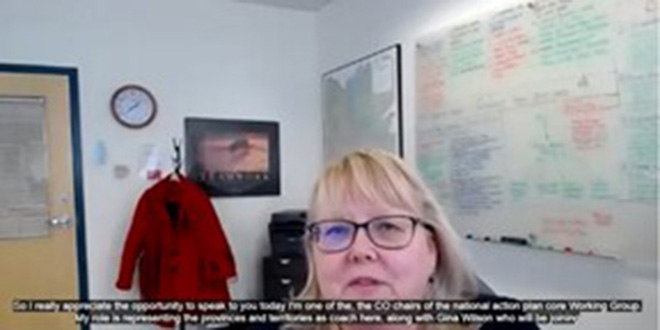
Valerie Royle
Deputy Minister responsible for the Women's Directorate, Yukon Government
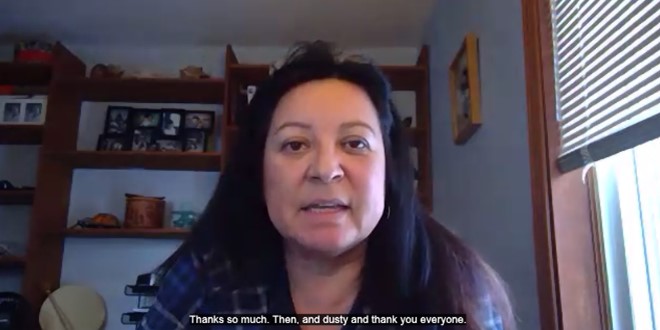
Gina Wilson
Deputy Minister, Heritage Canada
What Was Heard
This session provided an update on the development of the National Action Plan.
Deputy Minister Valerie Royle, Deputy Minister responsible for the Women's Directorate, Yukon Government, provided an update on the work being done in the Yukon on the National Action Plan. This included a discussion on the strategy's vision, values, principles and four pillars: Strengthening Connections and Supports, Community Safety and Justice, Economic Independence, and Education.
Deputy Minister Gina Wilson, Heritage Canada, provided an update on the development of the National Action Plan and talked about the work on Indigenous languages and culture as essential to the development of the plan. Several initiatives underway to support the plan were highlighted, including the establishment of the National Investigative Oversight Body of the RCMP and the federal government's support to combat systemic discrimination and violence against Indigenous peoples, women, and LGBTQ2S+ people.
"Our common goal is to address gender-based violence and anti-Indigenous racism, and that can only be done when we undertake this work holistically in a cohesive way that brings together all of our efforts across all of our sectors of society to do right for the survivor families' loved ones and future generations." – Deputy Minister Wilson
Action Items
- Deputy Minister Wilson committed to speak to the Deputy Minister of Crown-Indigenous Relations about representation of different First Nation groups from BC on the National Action Plan's working group and subcommittees.
- Deputy Minister Wilson committed to raise the issue of anti-racism and cultural awareness training with the Commissioner of the RCMP.
Communication - "Best Practices"
Breakout Session
Speakers
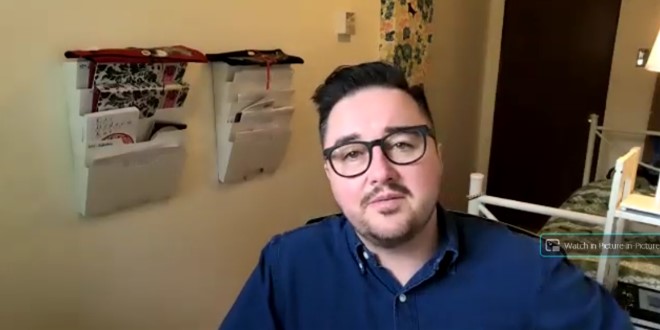
Davis McKenzie
Principal, Toχʷoχʷ (Becoming Clear) Communications (Moderator)
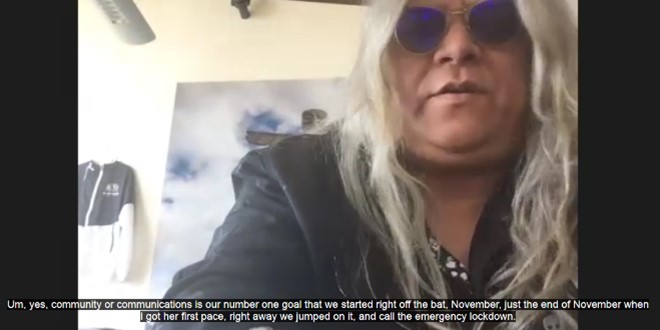
Chief Kevin Peacey
Klahoose First Nation
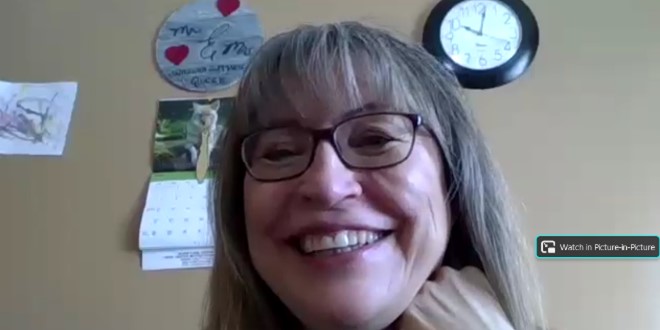
Chief Marie Quock
Iskut
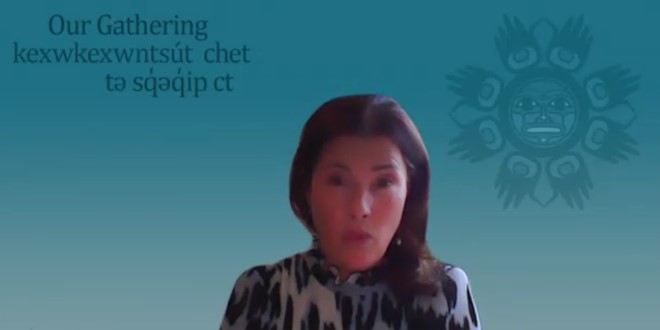
Andrea McDonald
Communications Manager, Indigenous Services Canada BC Region
What Was Heard
The first eleven months of the COVID-19 response showed the vital role of communications. This session reviewed best practices in communicating during a crisis and the success of innovative approaches. Panelists shared their communities' experiences.
Moderator Davis McKenzie, a member of Tla'amin Nation spoke to communication best practices as it related to Tla'amin Nation's response to COVID-19.
Davis McKenzie provided an overview of a three-pillar strategy:
- Be first to provide accurate and timely information to citizens, neighbours and the media
- Humanize the outbreak and frontline workers responding to it and bolster morale
- Confront issues such as anti-Indigenous racism through joint communications
In addition, comments were provided about the success of using social media, namely Facebook, to reach members and neighbouring communities with timely, appropriate messaging and information.
Lastly, three important lessons-learned were highlighted:
- Internal coordination and leadership are paramount
- Be the first and authoritative source of information
- Have your partners do their part, but hold the pen
Chief Kevin Peacey of Klahoose First Nation and Chief Marie Quock of Iskut shared the experiences of their communities and the importance of their communications practices in the response to the pandemic and vaccine rollout. Both Chiefs said that demonstrating leadership and supporting the communication efforts of emergency management teams were key elements in their success.
Chief Peacey spoke to the community's quick response to the pandemic, the support of its Council for the response measures and the varied communications plan (Facebook, phone calls, letters) adopted by the community, including one-on-one discussions with those who found the restrictions difficult to follow. Chief Peacey also noted that the community realized emergencies such as the pandemic could happen again and have therefore worked on emergency planning policies and ensuring an emergency team is ready to go.
Chief Quock outlined that a key to the community's successful response included keeping members calm, having the Council and the emergency management team working together in a coordinated manner, and following a varied communications plan (including the use of Facebook, live videos, written notices, phone calls, and informed monitors at traffic check-points) that relied on fact-based information and incorporated reassuring messages. Chief Quock also discussed cooperative efforts with the local mining company and the regional emergency management team as contributing to the protection of the community.
"We always believe that being in prevention mode is better than being in crisis mode, so that's where we worked from, starting at our first meeting." – Chief Quock
The session went longer than planned due to the number of participants wanting to share their communications activities, and stories of successes and challenges. In response to the high level of interest, the session ended with Jehan Casey of the FNPSS announcing that they planned to offer a new virtual communications course taught by Davis McKenzie later in 2021 (course development and delivery was funded by ISC in response to feedback from Our Gathering 2020). Links to BC Region's Update as well as the First Nations Communications Toolkit were made available as resources to participants.
Action Items
To support the identified need for the development of communications skills in communities, ISC is supporting the First Nations Public Service Secretariat in developing an on-line communications toolkit through the Professional and Institutional Development Program. ISC Communications will provide in-kind support for the design and launch of the web-based toolkit.
Emergency Management - "Responding to a Global Pandemic"
Breakout Session
Speakers
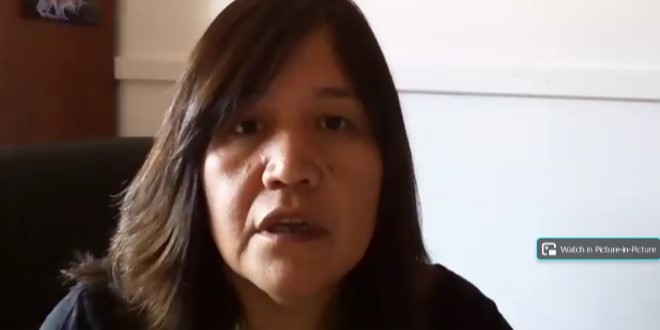
Kupki7 Helen Henderson
Canim Lake First Nation / Tsq'escen'emc (People of Broken Rock)
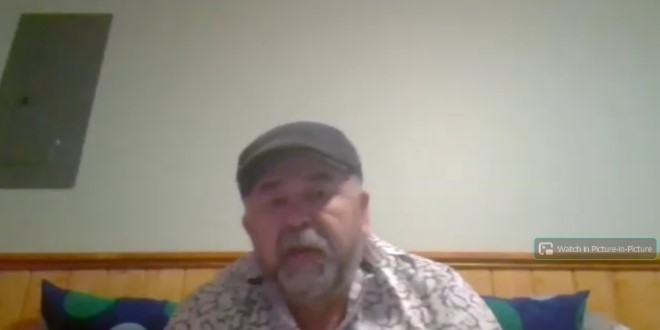
Chief Joe Alphonse
Tl'etinqox Government
What Was Heard
The panelists discussed the impact of COVID-19 in their communities, what they learned through their pandemic response, and how they were approaching the future.
Kupki7 Helen Henderson started by introducing the community of Canim Lake, followed by sharing the story of the COVID-19 outbreak in the community and how the emergency response plan was activated and implemented. Kukpi7 Henderson highlighted several unforeseen challenges that needed to be solved, such as restricting access to parts of the community through road barriers, essential staff (e.g. health care workers) being in isolation, and difficulties communicating with members, which was exacerbated by connectivity challenges in the community.
There were several lessons learned:
- Staff shortages highlighted the need to plan for mass exposure and mass isolation
- A communications plan was needed and tailored to the community — heads of households received vital information via a phone tree system, and they then relayed information to family members
- A plan was needed to address the needs of vulnerable populations facing addictions — they decided to provide withdrawal supplies to assist with self-isolation at home
- A plan was implemented to work with local RCMP to address issues with COVID-19 positive members who were not following health protocols or self-isolating
- They worked with the school district to prepare homework packages so students could homeschool
- A mass food distribution system was put in place throughout the lockdown
- During a period of cold weather, they contracted members to deliver firewood to those in need
- They developed relationships with local media in 100 Mile House and Williams Lake providing them with accurate and first-hand information to take control of the information flow
- They assembled pandemic kits with medicine, vitamins, and food for COVID-19 positive members
- As they had positive and negative cases living in the same households, they set up isolation spaces in hotels
- They mitigated risks related to children in care and how to safely reunite them with their family members
- They planned for the funerals of members with limited attendance from the wider community
- They worked in collaboration with the community's neighbours, such as the school district, the local municipality, the regional district, the RCMP, the MLA and fellow Chiefs in Northern BC
Chief Joe Alphonse started by introducing the community of Tl'etinqox and then spoke to the experiences of the COVID-19 pandemic.
Tl'etinqox Government faced many challenges including:
- keeping the community safe due to traffic as a result of their location near the highway
- housing density that created challenges with isolating members
- community members with addictions who had difficulties adhering to restrictions
- the RCMP not being able to enforce community regulations
- difficulties dealing with Emergency Management BC and procuring resources
- and ensuring that children in care had access to their families
Like Chief Henderson, Chief Alphonse noted the challenges with being able to support family when a community member passed away and also spoke to the impact of residential schools on the community's response. Chief Alphonse explained that the community hired a recorder to document the experiences, challenges and successes, both for future generations as a reference tool and as a means of holding government accountable. Chief Alphonse also said that the COVID-19 pandemic highlighted the need for self-government, more and adequate resources, and a First Nation-led police force.
Supporting First Nations Learners Through COVID-19
Breakout Session
Speakers

Deborah Jeffrey
Executive Director, First Nations Education Steering Committee (Moderator)
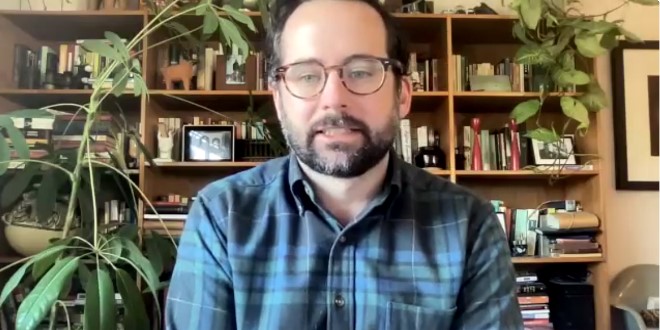
Thane Bonar
Director of Communication and Policy, First Nations Education Steering Committee (Moderator)
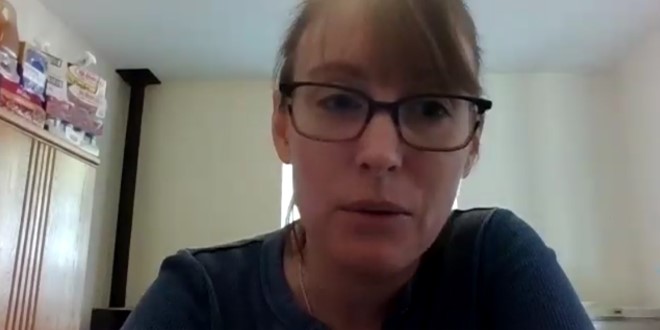
Heather Shaffer
Special Education Coordinator / Supervisor of Elementary Instruction, Lilwat Nation
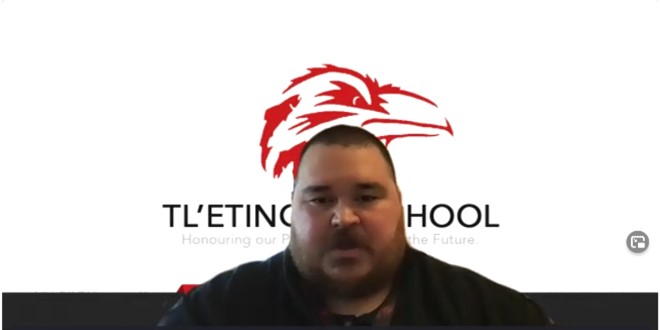
Clayton Grice
President, First Nations Schools Association and Principal, Tle'tinqox School
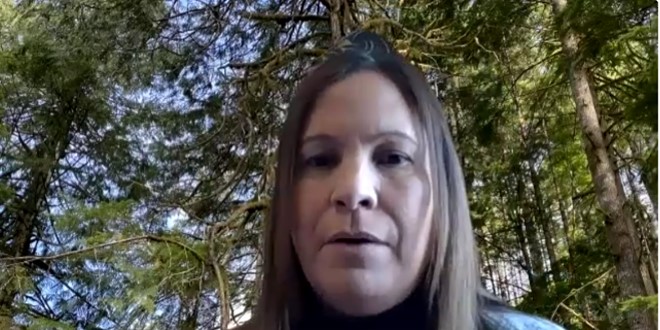
Tammy Harkey
Councillor, Musqueam Indian Band
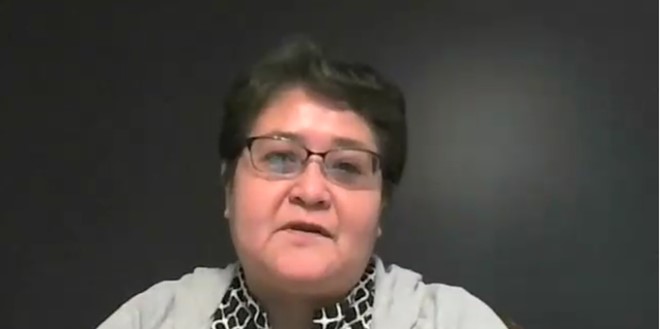
Iris Frank
Education Manager, Tla-o-qui-aht First Nation
What Was Heard
Deborah Jeffrey from the First Nations Education Steering Committee (FNESC) provided an overview of critical issues impacting First Nations education during the pandemic. The session included a discussion on the pandemic response by FNESC and the First Nations Schools Association (FNSA) in addressing the needs of First Nations students, on- and off-reserve, attending public and independent schools. COVID-19 funding for First Nations students was highlighted including sources such as the Provincial Safe Return to School Grant, the Federal Safe Return to Class Fund, the Immediate Health and Safety Measures Funding and funding allocated by FNESC to BC First Nations as part of federal funding. Participants were encouraged to "do outreach to the school districts, to talk about... funding" and how they could work together to collectively support First Nations learners.
"This model of partnership recognizes the critical and complementary roles that school districts and First Nations play in providing education services to First Nations learners." – Deborah Jeffrey
Deborah Jeffrey also addressed COVID-19 issues specific to managing First Nations schools, including how FNSA and FNESC have collaborated on this front. Resources developed by FNESC and FNSA to support First Nations schools were introduced to participants, covering information on reopening schools, continuous and online learning, supporting families, mental health and resiliency supports, and COVID-19 protocols.
The panel discussion highlighted practices First Nations have undertaken to support learners. For First Nations schools, these included: being connected with and getting direction from the community, Chief and Council, and parents; using the FNESC resources to navigate a return-to-school plan with a focus on hybrid learning; and adapting policies for staff to work in a pandemic environment. Panelists provided key takeaways including: being transparent with members, engaging in open communication, and keeping adaptability at the forefront when responding to continuously changing environments.
For public and independent schools, however, panelists said there was little assistance from school districts when students moved to at-home learning. For instance, over 90% of Tla-o-qui-aht First Nation students did not have a tablet or laptop to use at home, and had to rely on their iPhones (though many had no connectivity). As well, the school district did not undertake follow up with the impacted students. Musqueam public school students were organized into in-community learning pods, but they did not have access to their teachers or other students online, and there was no cultural content in the learning packages being sent from the school district. In contrast, the panelists said private school students were well supported.
"The impact of COVID is not even... we know about the social inequities with our Indigenous communities, so the impact is more profound. COVID shone the light on... strengths and deficiencies." – Tammy Harkey
Panelists explained that more accountability is needed for school districts to adequately support First Nations learners. They noted that as many First Nation communities were still paying full tuition costs, alternative learning methods, better access to teachers and providing technology supports should be more equitably shared by the school districts. They also said reporting by the school districts on the Federal Safe Return to Class Fund was not aligned with First Nation perspectives, priorities, and the reality in communities.
Panelists discussed the many initiatives they undertook, without school district assistance, to support students, such as:
- establishing learning pods within communities
- providing laptops and iPads to students
- developing alternative learning methods
- hiring youth workers
- continuing meal programs
- offering regular personal check-ins with students and parents
- providing homework packages
"As I'm forging ahead and trying to do things for my school and community, I look back over my shoulder to make sure it's them guiding the direction I'm going." – Clayton Grice
FNESC highlighted additional work currently in progress:
- Research on learning loss amongst First Nation learners during COVID-19
- Working with relevant organizations to develop a report similar to the In Plain Sight report, to address racism in the education system
- Working on mental health and resilience pieces, including support for post-secondary education students
- Working on a language policy that supports the teaching of Indigenous languages online and in person
- Developing a template letter for First Nations communities to use to address concerns related to provincial and federal COVID-19 funding and reporting to school districts
Action Items
- FNESC to share a template letter for First Nations communities to use to address concerns related to provincial and federal COVID-19 funding and reporting to school districts.
Emergency Management – "Community-to-Community Sharing"
Breakout Session
Speakers
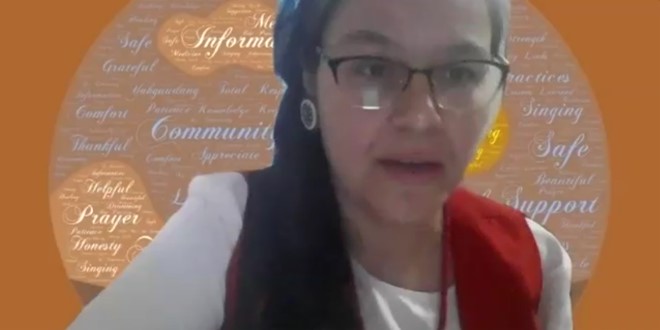
Patrika McEvoy
Councillor, Old Massett Village Council (Opening Prayer)
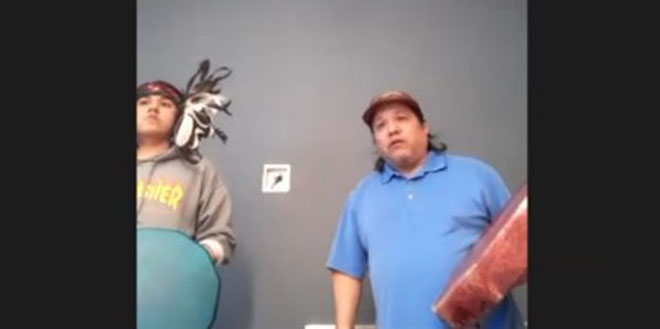
Ron Prest
Skwah First Nation (Closing Prayer)
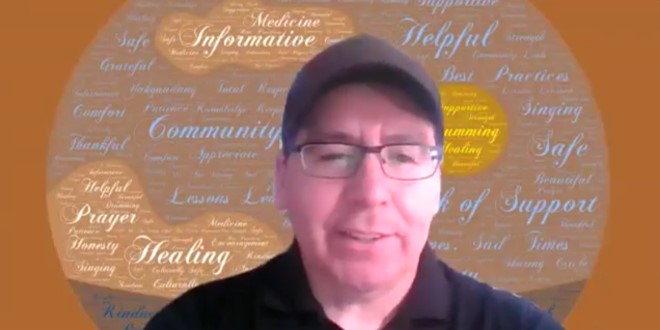
Darryl Adrian
Emergency Management Coordinator, Lillooet Tribal Council
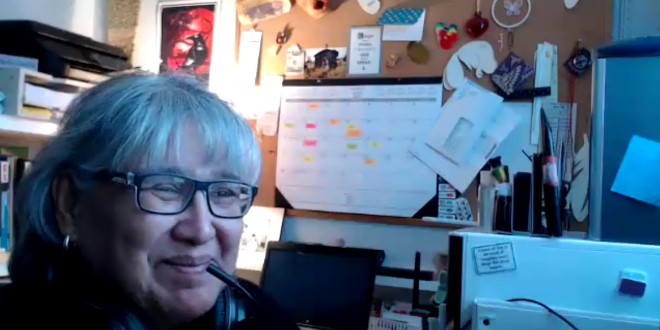
Valerie O'Connal
Skwah First Nation
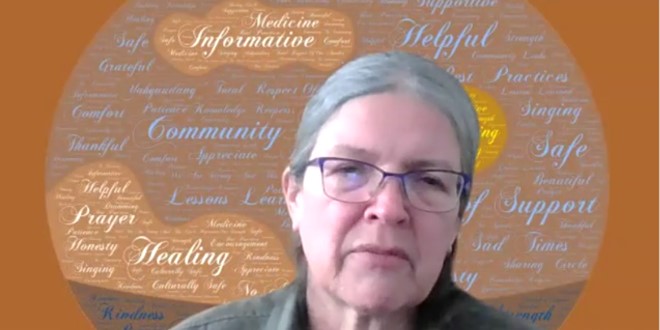
Councillor Kelly-Ann Speck
'Namgis First Nation
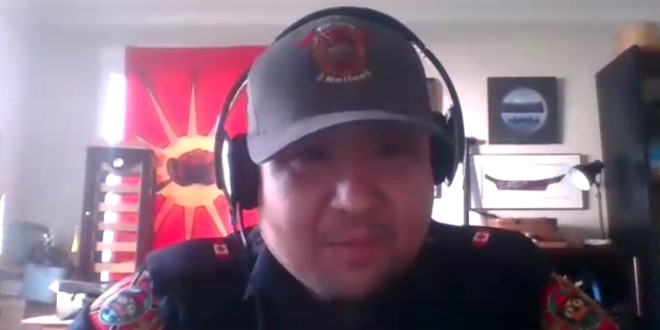
Erik Blaney
Emergency Services Advisor, Naut'sa mawt Tribal Council
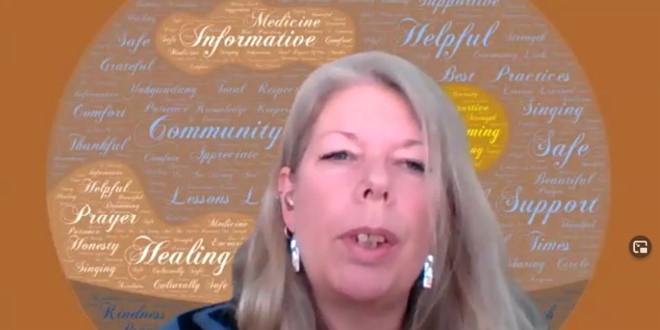
Teri Kish
Emergency Services Manager, Gaw Tlagee (Old Massett)
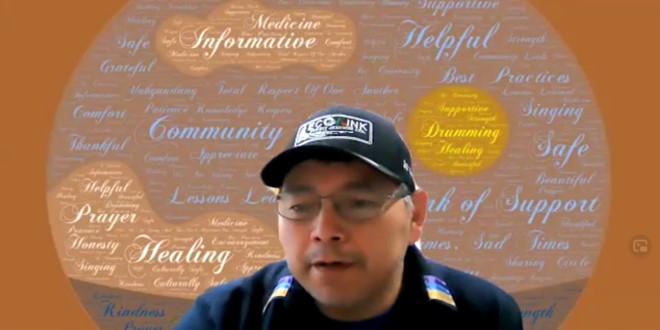
Kukpi7 Fred Robbins
Esk'etemc First Nation
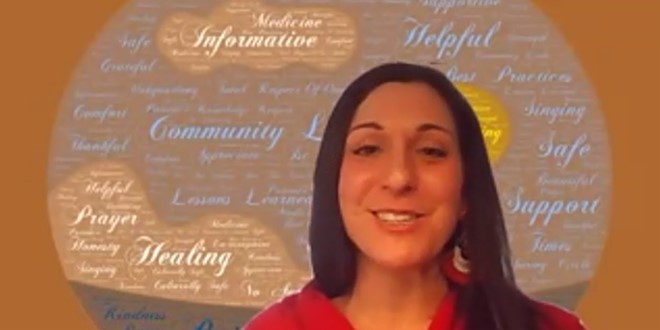
Jaimi Gardner
Indigenous Services Canada BC Region (Moderator)
What Was Heard
This session provided insight into the weekly COVID-19 Community-to-Community Sharing group that brought together First Nation leadership, Emergency Program coordinators, Health Directors, and ISC staff to share best practices through the pandemic preparedness and response.
Panelists discussed how this space was created for information sharing and problem solving between Indigenous communities and organizations. They shared how important it was, according to Councillor Kelly-Ann Speck, to "share experiences but also to learn and listen because we know that at any time, we might have another outbreak." It provided a solid network of support as members became fatigued, experienced losses, and celebrated successes. As well, they discussed the real burden on and sense of responsibility carried by leaders and emergency managers. One of the highlights is how these meetings started to include the sharing of cultural practices — songs, stories and prayers — in addition to information sharing.
This meeting gave us all an opportunity to either pound the table or let out a few tears, to hear some songs... and to come together to hear and learn from one another." – Kukpi7 Robbins
"The space quickly transformed into a space to include all First Nations in BC who would like to join to learn, share and connect with others." – Ms. Gardner
"This forum represents a belief in reciprocity — you are providing mutual aid to each other to your mutual benefit... and it has reinforced that our community is very large; it's not the boundaries of our own membership." – Councillor Speck
"We should keep these calls going and start looking at what recovery looks like in our communities." – Mr. Blaney
Economic Development – "Indigenous Economic Recovery Initiatives"
Breakout Session
Speakers
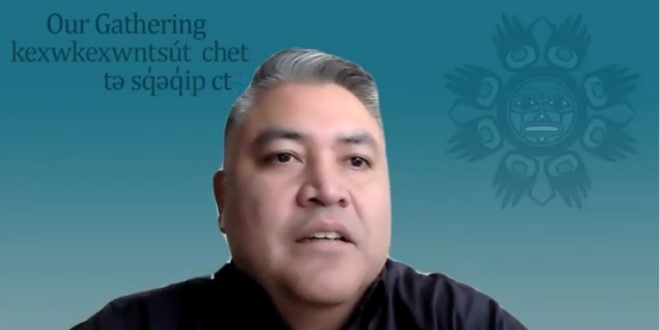
Regional Chief Terry Teegee
BC Assembly of First Nations (Moderator)
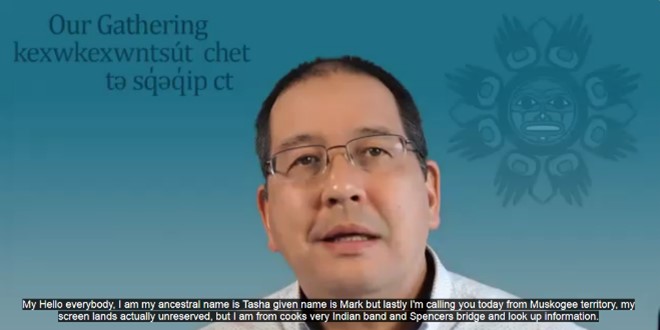
Mark Podlasly
Director of Economic Policy and Initiatives, First Nations Major Projects Coalition
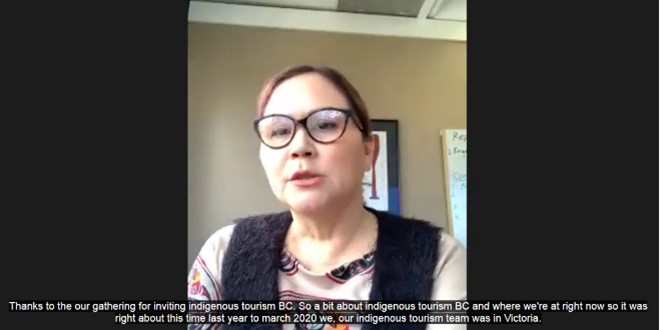
Paula Amos
Chief Marketing and Development Officer, Indigenous Tourism Association of BC

Michael Bonshor
Founder and Managing Director, BC First Nations Business Development Association
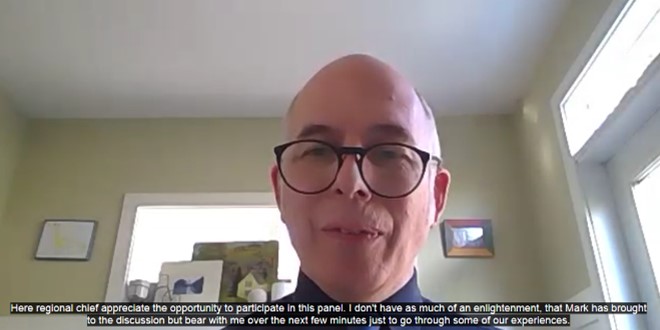
David Russell
Director of Lands and Economic Development, Indigenous Services Canada BC Region
What Was Heard
The panel hosted an open dialogue on strategies and initiatives that could help First Nations communities in their economic recovery efforts. During the panel discussion, two major themes emerged:
- The current economic impact that the pandemic has had on First Nations communities, and the need for improved government programs and procurement processes, both domestic and cross border, to allow First Nations to fully participate in the economic recovery following the pandemic
- The need to engage with First Nations to adopt more equitable measures and allocation of economic growth and resources
Paula Amos spoke to the impact of COVID-19 on the Indigenous tourism industry explaining that the evolution of assistance to Indigenous tourism companies went from helping to keep communities safe when the pandemic started, to supporting them to "keep their lights on", and then transitioning to working on a recovery strategy as the province started to open up. In addition, Paula Amos noted how the pandemic hit this industry hard, with over 90% of tourism businesses closed or operating at limited capacity. It was re-affirmed that more needed to be done to place First Nations in a strategic position to capitalize on the opportunities post pandemic, and that key discussions around tourism sustainability and economic indicators needed to happen.
Michael Bonshor introduced the newly formed First Nations Business Development Association, created to support and advocate for businesses owned by First Nations in BC. Initial areas of focus for the Association include business governance and the working relationship between elected and business leaders, creating an information awareness program, and collaborating and partnering with existing organizations working in the same area (such as Innovate BC).
Mark Podlasly spoke to the report titled, Centering First Nations Concepts of Wellbeing which discusses the prominent use of Gross Domestic Product (GDP) as a measure of the economic wealth of a country and people, and how it does not fit with the current values and use of well-being indices. As a measure of economic exports and output, Mark Podlasly noted the measure of GDP had historically left First Nations out of the economy by not integrating other key indicators of economic and social success, such as environmental sustainability and resource conservation. The need to have a more appropriate measure of economic value also brought up a discussion on land rights. Mark Podlasly also highlighted the need for First Nations to have more resource revenue sharing and rights to economic activities on their traditional lands.
David Russell provided an overview of federal initiatives set up to support businesses during the pandemic, touched on the collaborative work with Indigenous businesses and organizations (such as Indigenous Tourism BC and Indigenous financial institutions) and ISC to deliver the Indigenous Community Business Fund.
Participants identified the need for ISC to provide more targeted programs to provide support and funding for First Nations to take advantage of tourism and large infrastructure projects once the economy opens up again. The discussion noted the expectation that the economy would improve and this was currently a good opportunity for First Nations to engage and work more collaboratively with ISC and other partners across BC. However, this is contrasted by the understanding that this opportunity comes at a point where many businesses are insolvent and struggling. A clear need to advance further toward reconciliation, knowledge transfer/integration and improved economic capacity of Indigenous communities was identified, otherwise, First Nations would continue to be hindered in enhancing economic development.
Recommendations included the following:
- Develop more Indigenous development corporations to allow more integration and engagement in the economy
- Support those businesses hardest hit by COVID-19, such as tourism businesses, so they can take advantage of the post-pandemic economic boom
Day Two
Speakers
Armchair Discussion

Elders Sam and Les George
Tsleil-Waututh Nation
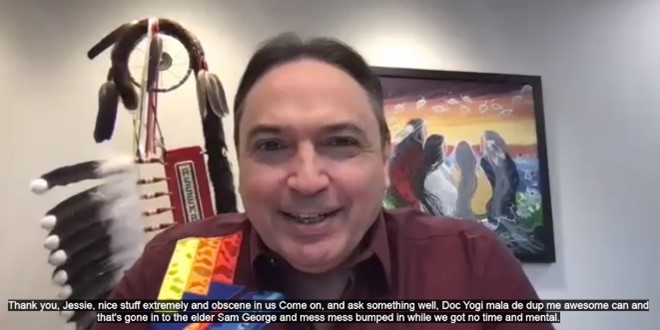
National Chief Perry Bellegarde
Assembly of First Nations
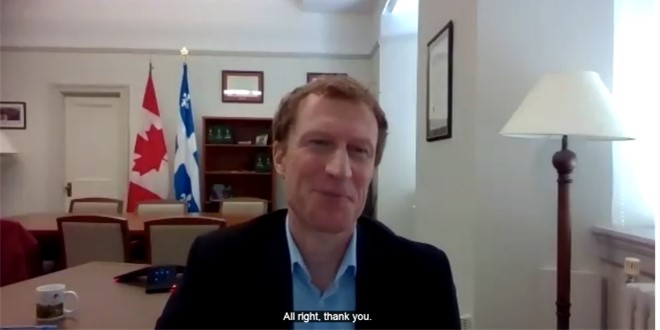
The Honourable Marc Miller
Minister of Indigenous Services
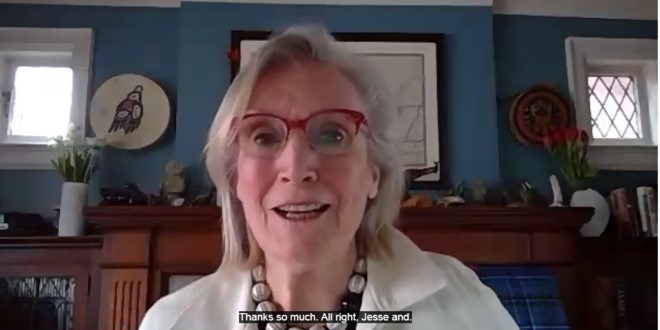
The Honourable Carolyn Bennett
Minister of Crown-Indigenous Relations

Regional Chief Terry Teegee
BC Assembly of First Nations (Moderator)
What Was Heard
More than 265 people virtually attended the armchair discussion with National Chief Perry Bellegarde, Assembly of First Nations, the Honourable Marc Miller, Minister of Indigenous Services, and the Honourable Carolyn Bennett, Minister of Crown-Indigenous Relations. The session was introduced by Regional Chief Terry Teegee, BC Assembly of First Nations. There was a lively and frank discussion of priorities, challenges and hopes for the future. The National Chief and Ministers were asked to reflect on three questions in their remarks:
- When you reflect on the past year, what are some of the things that you are really proud of?
- Over the last year, has there been anything in particular that has kept you awake at night?
- What is giving you hope for the future?
Minister Bennett spoke to the importance of events like Our Gathering 2021, kexwkexwntsút chet, tə sq̓əq̓ip ct, and how key they are in transforming the relationship between the Government of Canada and Indigenous peoples. Minister Bennett spoke to achievements over the course of the previous year, including the response to the issues identified by the Calls for Justice in the Final Report of the National Inquiry into Missing and Murdered Indigenous Women and Girls (through the National Action Plan) and the introduction of legislation to implement the UN Declaration on the Rights of Indigenous Peoples. Also discussed was the collaborative work being done to advance self-determination in BC.
Minister Miller discussed the federal government's efforts in BC to respond to the COVID-19 pandemic in partnership with communities and the First Nations Health Authority. Minister Miller also discussed the work being done in relation to child and family services and the department's efforts to support the health needs of Indigenous children through Jordan's Principle. The impacts of the ongoing opioid crisis in BC on Indigenous peoples and communities were also acknowledged.
National Chief Bellegarde spoke to the impact of COVID-19 and the work being done by First Nation leaders to protect First Nations communities, including the importance of ensuring that First Nations priorities were reflected in the federal government's budget cycle so that resources are allocated to address the needs of First Nations communities. National Chief Bellegarde also noted the need to close the gap for First Nations people and the promising future he sees in Indigenous youth.
Specific Claims
Plenary Session
Speakers
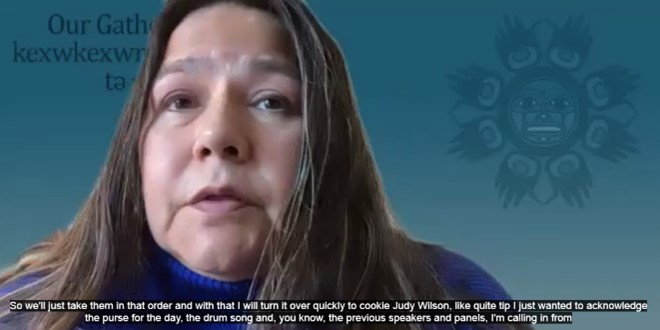
Kukpi7 Judy Wilson
Union of BC Indian Chiefs Secretary-Treasurer, Chief of Neskonlith Indian Band
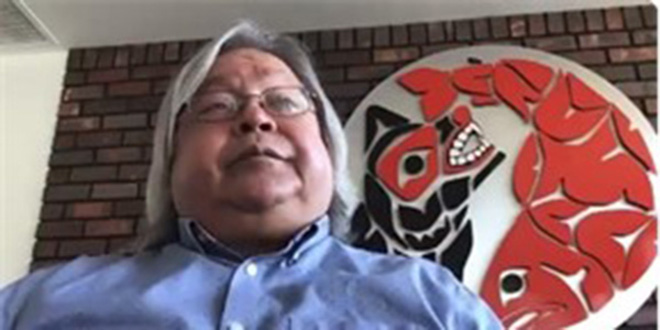
Chief Dalton Silver
Sumas First Nation
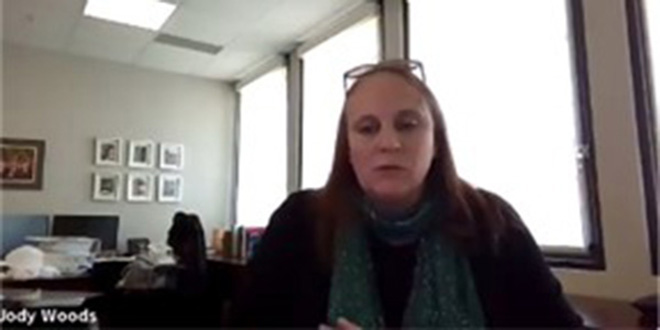
Jody Woods
Research Director, Union of BC Indian Chiefs, BC Specific Claims Working Group
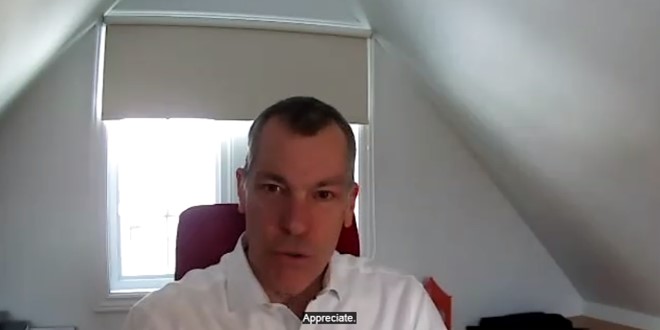
Martin Reiher
Assistant Deputy Minister, Resolution and Partnerships, Crown-Indigenous Relations and Northern Affairs Canada
What Was Heard
An update was provided from First Nation and federal government representatives on specific claims activity in BC.
Kukpi7 Wilson spoke to the work of the BC Specific Claims Working Group, noting the Working Group's submission in 2019 to the Assembly of First Nations on an independent process for specific claims and reiterated that:
"To foster right relations, both dimensions of Canada's conflict of interest — its control of the management and assessment of claims and its reliance solely on Canada's system of common and civil law used to assess and adjudicate claims — must be completely eliminated from all parts of the process." – Kukpi7 Wilson
Kukpi7 Wilson raised that Canada was in a conflict of interest as it controlled the management and assessment of claims against itself, and did not integrate or recognize Indigenous laws. Kukpi7 Wilson pointed out that these conflicts of interest meant that the claims process did not meet Canada's obligation under UNDRIP. To that end, the Working Group is currently focused on the integration of Indigenous laws into dispute resolution.
Jody Woods spoke to current and emerging policy issues in specific claims in BC, highlighting recent changes the federal government made to research and negotiation funding guidelines that resulted in cumbersome, time-consuming and inflexible processes that did not align with collaboration commitments, and could impede access to fair claims resolutions for First Nations. Also highlighted were discrepancies in research funding allocations and noted concerns raised by First Nations about the government's approach at negotiating tables. Jody Woods summarized that these issues had eroded trust between First Nations and the Government of Canada and indicated a lack of transparency and accountability on the part of the federal government.
Chief Dalton Silver provided a historical perspective on specific claims and summarized the current situation as follows:
- transformative change is needed to create a fully independent process that fully integrates Indigenous laws;
- systemic issues of unilateralism and lack of transparency that arise from Canada's conflict of interest; and
- a fair and transparent approach to claims resolution is needed for all claims, regardless of anticipated settlement value.
Chief Silver further explained that sufficient capacity funds need to be provided to First Nations to "level the playing field" and that it was time to take "words to heart... to embrace Nation-to-Nation, face-to-face relationships between First Nations and the Government of Canada."
Assistant Deputy Minister Martin Reiher provided an overview of the Resolution and Partnerships sector where the Specific Claims Branch is located within CIRNAC. The overview provided news that the Specific Claims Branch was transferred to the sector in April 2020 to support better alignment between specific claims and additions to reserve policies and reform initiatives, and to reinforce CIRNAC's efforts to support Indigenous partners in addressing issues of the past, while bringing greater focus on the path forward toward Indigenous rights recognition and self-determination. In addition, an update was shared on the Specific Claims Program, stating that in the last five years, a total of 153 claims in British Columbia had been resolved for $3.7 billion in settlements paid to First Nations. Since March 2020, seven claims had been settled and 31 claims had been assessed. Efforts were noted to work collaboratively with First Nations throughout the claims process, to be innovative and flexible, and to communicate updates. Assistant Deputy Minister Martin Reiher responded to the BC Specific Claims Working Group's Assembly of First Nations submission on reforming the claims process by stating:
"We are committed to working closely with our First Nation partners to find fair and practical ways to improve the specific claims process." – Assistant Deputy Minister Martin Reiher
Action Items
Assistant Deputy Minister Reiher committed to determine whether information about how the $2 million in research and development funding was distributed to First Nations can be made public and shared with interested parties.
United Nations Declaration on the Rights of Indigenous Peoples in Canada and Bill C-15: An Act respecting the United Nations Declaration on the Rights of Indigenous Peoples
Plenary Session
Speakers
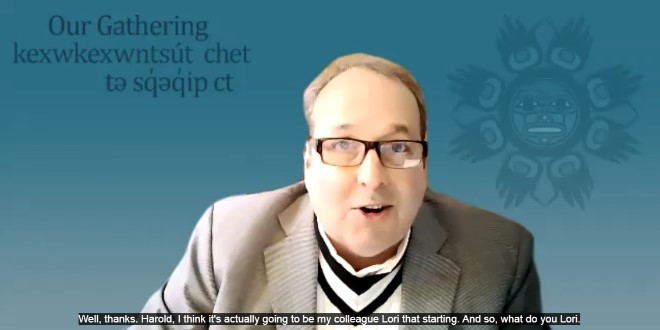
Assistant Deputy Minister Ross Pattee
Implementation Sector, Crown-Indigenous Relations and Northern Affairs Canada
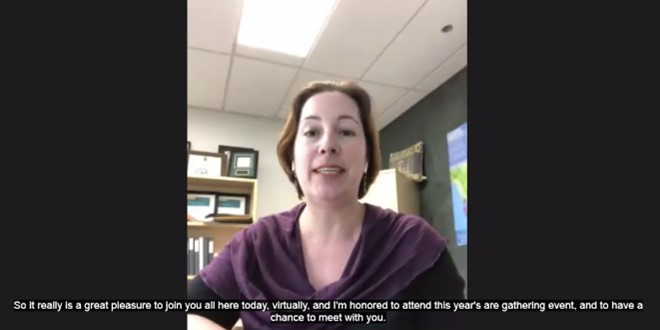
Assistant Deputy Minister Laurie Sargent
Aboriginal Affairs Portfolio, Justice Canada
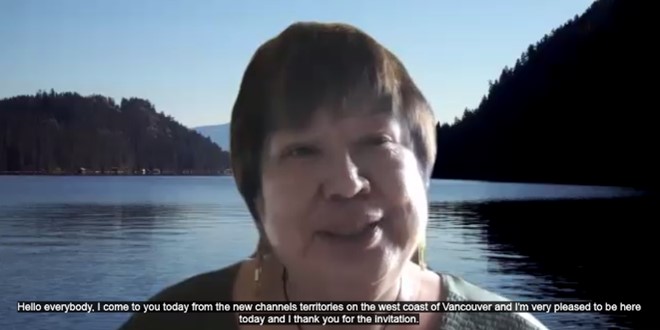
Judith Sayers
President, Nuu-chah-nulth Tribal Council
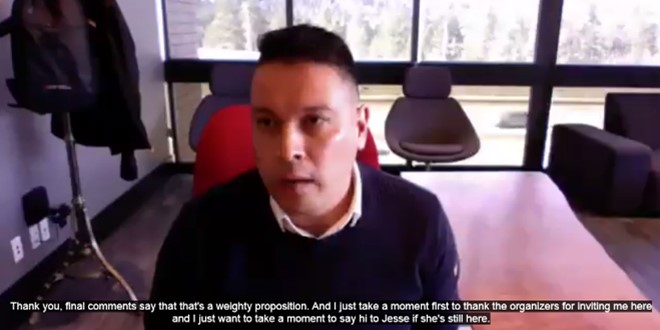
Chief Christopher Derickson
Westbank First Nation
What Was Heard
An update was provided on Bill C-15, An Act respecting the United Nations Declaration on the Rights of Indigenous Peoples (the Act), and a discussion was held on ways to explore opportunities with First Nations leadership and others on how to implement the legislation following Royal Assent.
Assistant Deputy Minister Laurie Sargent began by reviewing the process of engagement that led to the development of the Act. This was followed by a summary of the essential obligations imposed by the Act, emphasizing the importance of collaborative work between the government and Indigenous peoples, and making it clear that work moving forward needed to be based on a whole-of-government approach. Also provided was the current status of the Act in Parliament and a description of the first steps for implementation after it receives Royal Assent. Assistant Deputy Minister Laurie Sargent explained that the federal government would be seeking a range of perspectives in this pre-planning stage, and would be reviewing internal governance mechanisms to develop and facilitate a whole-of-government approach to the alignment of laws with the Declaration.
Assistant Deputy Minister Ross Pattee addressed the action plan component of the Act, clarifying that Canada was not starting with a pre-determined set of action plan priorities, but instead with a blank slate, and stated the first step would be to determine how the action plan would be developed. It was also explained that the federal government would be reaching out to communities to hear how the development of the action plan should unfold and to give communities "the space to tell us what your communities need from the action plan." Assistant Deputy Minister Ross Pattee said they would be working to ensure they were harmonizing and not duplicating efforts, such as through the Truth and Reconciliation Commission's Calls to Action, the establishment of the National Council on Reconciliation, and the National Inquiry on Missing and Murdered Indigenous Women and Girls' Calls for Justice. As part of the discussion, three key questions were posed:
- Are there models for engagement between Indigenous Peoples and governments that resonate with you?
- How do we ensure that diverse populations of Indigenous Peoples are heard?
- What are the key priorities to include in the implementation of the Act?
President Judith Sayers discussed perspectives on what the Government of BC has learned from the implementation of its legislation respecting the United Nations Declaration on the Rights of Indigenous Peoples. One key barrier noted by Judith Sayer was the bureaucracy's mindset about how they think about Indigenous peoples. In this discussion, Judith Sayer encouraged the federal government to prioritize anti-racism and cultural competency training within its ranks as an early and ongoing action to fulfill its commitment to implementing its legislation. Judith Sayer noted that there was a lack of "teeth" in the Act as the only accountability component was the annual report to Parliament with no direct accountability to First Nations. It was recommended that an independent tribunal be created to ensure all governments take action as there needs to be more First Nations community voices at the table, in addition to those represented by Indigenous organizations. Judith Sayers noted there are places in BC to draw on for expertise and priority setting. In terms of the two "chores" (the laws and the action plan), suggested that the action plan could be incremental, with short-term, achievable goals, rather than waiting for a full plan to be released prior to taking action, using existing groups that were mobilized and ready to work. Judith Sayers also highlighted the lack of a role for First Nations in drafting the legislation or its amendments, and the lack of processes to ensure First Nations and federal and provincial governments were working together to develop legislation and work through its amendments. Judith Sayers re-emphasized that an independent tribunal would assist in enabling the two groups to work together, highlighting the need to resolve confusion around key terms within the Declaration, and concluded by saying that it is critical to maintain good relations so that things could be resolved through discussions.
"I really want to work to get this done properly and to give us the freedom to do what we need to do in the way we want to and really reflect true self-determination." – President Sayers
Chief Derickson closed the panel discussion by telling the story of Westbank First Nation's journey to self-government. Some questions posed to those attending included, "Are you ready for UNDRIP to be implemented? Are we prepared to change the narrative from one of blaming our Chiefs and Councils or Canada... and start to take responsibility for our future?" Chief Derickson concluded by noting that creating the legislation was "the easy part" and that the real work was in its implementation. Chief Derickson commented that Westbank First Nation has responsibility for its future and that many of UNDRIP's articles were already reflected in Westbank First Nation's self-government agreement. The First Nation was not prepared to wait for legislation to be passed, or an implementation plan to be tabled, and that Westbank First Nation was ready to implement UNDRIP "now" and challenged the federal government to match the pace of First Nations who were ready to take action.
Closing Remarks Day Two
Speakers
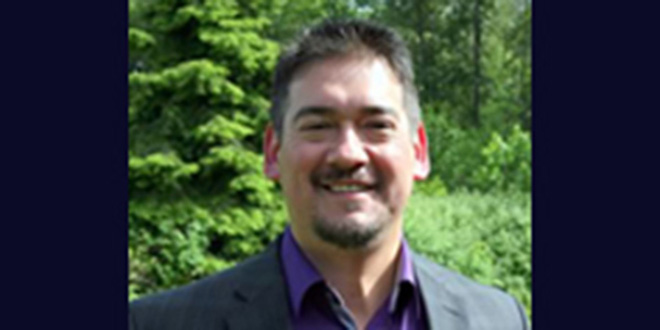
Robert Phillips
First Nations Summit

Angela Bate
Director General, Treaties and Aboriginal Government, Negotiations West Crown-Indigenous Relations and Northern Affairs Canada
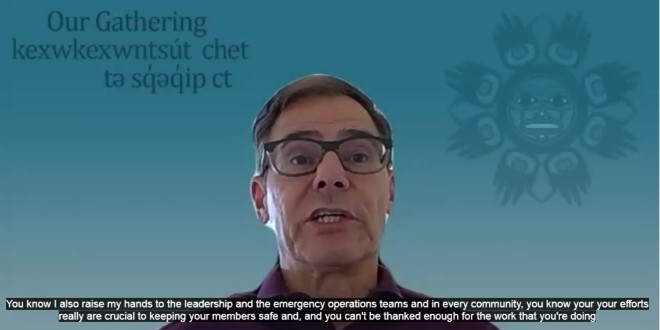
Bill Guerin
Associate Regional Director General, Indigenous Services Canada BC Region
What Was Heard
Thanks was given to the Elders, speakers, moderators, participants, volunteers and FNPSS staff for organizing and attending this event. The invitation was sent for the second part of Our Gathering 2021, kexwkexwntsút chet, tə sq̓əq̓ip ct on June 23 and June 24, 2021. A note was made that if there were any items participants would like included on the agenda, to please contact ISC BC Region.
Evaluation Highlights
Participant feedback about Our Gathering 2021, kexwkexwntsút chet, tə sq̓əq̓ip ct was collected throughout the two days. Highlights of the feedback are provided below.
General Feedback
The feedback from survey respondents provided valuable comments and suggestions. This feedback is important for the development of future sessions, particularly as this was the first time that this event was held in a virtual format. The feedback included the following suggestions:
- Give additional time for Q&A periods during all sessions
- Instead of having two full days of virtual sessions, keep the days shorter to prevent the fatigue from long days on Zoom
- Ask for speakers, panelists and moderators to provide additional virtual resources in the sessions, such as audio and video clips and different backgrounds
- Retain the traditional cultural supports offered in the March 2021 session
- Provide a Zoom breakout room where participants can choose to have lunch together, chat and possibly network
The following are some quotes from survey respondents:
"Very well organized and relevant. Great facilitators."
"Amazing to be a part of the 'Our Gathering' webinar, many interesting stories that all have common ground on certain issues. My heartfelt condolences to all that [have] lost their families during this pandemic."
"I appreciate what took place today, thank you to all the presenters, moderators, panelists. Knowledge is power and to hear perspectives from First Nations individuals helps for a better understanding of where we stand as First Nations people as a whole."
"Thank you for today :)"
"It went very smoothly! Wow, good job. Moderation / facilitators were excellent. Recapping questions and repeating questions added a lot to being able to follow the conversation."
Conclusion and Next Steps
First Nations have consistently affirmed the importance of communities sharing their successes and challenges. The agenda of future Our Gathering, kexwkexwntsút chet, tə sq̓əq̓ip ct events will continue to incorporate suggestions and recommendations that respond and are relevant to the needs of First Nations communities.
If you have suggestions to improve and enhance the dialogue, engagement and networking of Our Gathering, kexwkexwntsút chet, tə sq̓əq̓ip ct events, you can provide those by email to ourgathering@sac-isc.gc.ca.
Appendix A: Delegate Information Package and Agenda
The March 10 and 11 Our Gathering Delegate Information Package and Agenda were available for all participants via the FNPSS website.